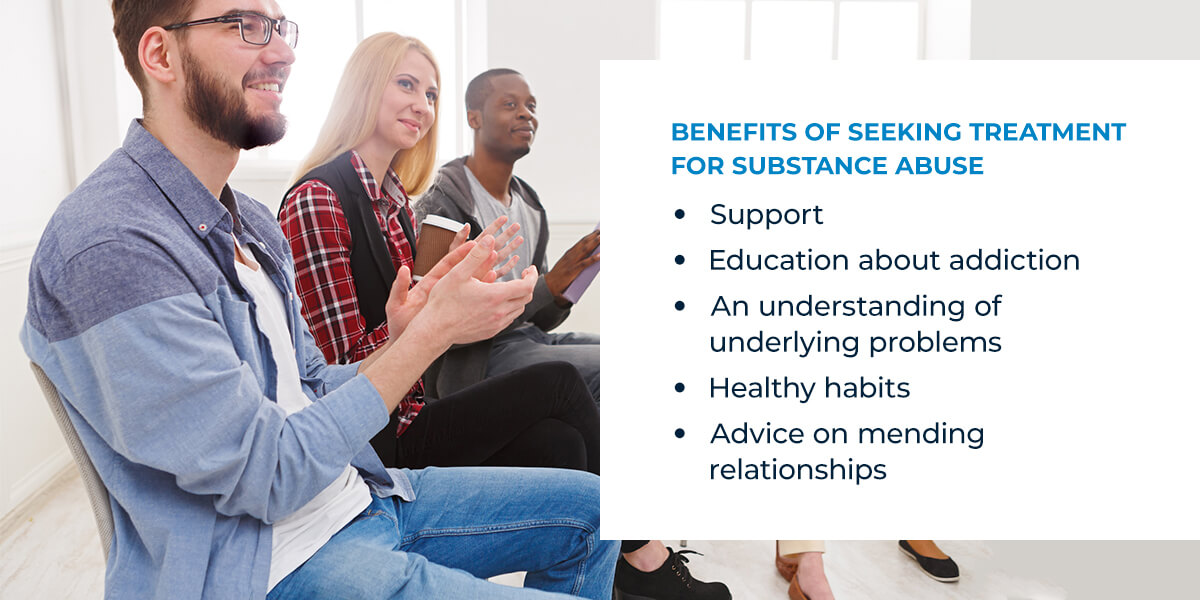A Comprehensive Guide to Substance Abuse Rehabilitation
Substance Abuse recovery, typically described as rehabilitation, is an organized procedure designed to assist people overcome dependence on drugs, alcohol, or other habit forming substances. It is not simply about cleansing-- it is a journey of psychological, psychological, and physical transformation. Rehabilitation centers provide safe atmospheres where individuals can confront the origin of their dependency, address psychological triggers, and discover dealing systems to sustain lasting sobriety. This process is directed by trained professionals, including specialists, clinical doctors, and counselors that understand the complicated nature of dependency as both a behavioral and physical problem.
Understanding the Core important Abuse Rehabilitation
At its core, recovery is about reconstructing an individual's life. Dependency often leaves behind deep marks-- stretched connections, financial distress, health issue, and mental illness. Through thorough rehabilitation programs, individuals are offered the devices to repair these elements slowly. Rehabilitation isn't almost avoiding substances; it has to do with redeeming control and uncovering one's feeling of self-respect. The programs stress framework, uniformity, and individual accountability, which are key to long-term healing success. Every tiny landmark during rehabilitation offers as a foundation for lasting sobriety.
Moreover, Substance Abuse rehab is not a one-size-fits-all method. It identifies that each person's addiction story is special-- what led to Substance Abuse abuse, exactly how it advanced, and exactly how recuperation can be sustained vary widely. As a result, treatment facilities tailor treatment strategies based upon specific evaluations, making sure that every individual obtains assistance that aligns with their mental state, addiction background, and life circumstances. This tailored approach considerably enhances recovery results and helps stop regression once people rehabilitate into day-to-day life.
The Advantages of Inpatient Rehabilitation Programs
Inpatient rehabilitation, likewise called property treatment, uses among one of the most reliable methods for those fighting serious Substance Abuse addiction. One of its main benefits is the distraction-free and structured setting. When a person gets in an inpatient center, they are temporarily removed from external triggers-- such as friends who use materials, stressful offices, or household disputes-- that might hinder their healing. This isolation from adverse influences allows clients to concentrate entirely on recovery. Living within a supportive and monitored setting develops the stability needed to damage old practices and form much healthier patterns of actions.
One more major advantage of inpatient rehab is the 24/7 expert guidance readily available per client. Withdrawal symptoms from medicines or alcohol can be unpredictable and, in some cases, lethal. Inpatient centers have clinical groups that offer day-and-night treatment, ensuring clients are safe and comfy during cleansing. Past physical health and wellness, continuous guidance likewise uses psychological reassurance-- clients know that assistance is readily available at any kind of time, which reduces stress and anxiety and builds rely on the healing procedure. This prompt accessibility to medical and mental assistance considerably boosts the success rate compared to outpatient take care of serious addictions.
Inpatient rehabilitation programs promote a strong sense of neighborhood and accountability. Patients interact with others who share similar battles, participate in group therapy, and involve in tasks that motivate teamwork and empathy. This setting nurtures good understanding and minimizes sensations of seclusion often connected with addiction. By getting in touch with peers and finding out from their experiences, people create social bonds that continue to support them also after leaving the center. This feeling of belonging, incorporated with regular expert advice, makes inpatient rehabilitation a highly reliable foundation for sustainable recuperation.
Inpatient Rehab Providers Offered
Inpatient rehabilitation centers offer a varied array of solutions designed to treat the mind, body, and spirit at the same time. The initial phase usually includes medical detoxing, a process that securely eliminates substances from the body while handling withdrawal signs. Detoxification is managed by medical specialists that may carry out medicine to relieve discomfort and prevent problems. Once detox is full, patients shift to organized day-to-day programs that consist of treatment, wellness, and therapy tasks. This incorporated technique makes certain that people not only overcome physical reliance yet likewise address mental and psychological facets of dependency.
Healing services go to the heart of inpatient rehab. Facilities deal individual treatment sessions, where patients function one-on-one with certified therapists to reveal the underlying root causes of their dependency-- such as injury, mental wellness conditions, or unresolved psychological pain. Cognitive-behavioral therapy (CBT), dialectical behavior modification (DBT), and inspirational interviewing are amongst the most usual evidence-based techniques made use of. Additionally, team treatment sessions give a supportive room for individuals to share experiences, gain perspective, and create social abilities. Family treatment is also often included, aiding to restore count on and enhance interaction in between patients and their liked ones.
Beyond conventional therapy, many inpatient programs try this website consist of all natural and leisure services to promote overall health - addiction treatment. Yoga, meditation, art therapy, and fitness programs help in reducing stress and anxiety and educate mindfulness. Nutritional counseling makes sure that individuals rebuild physical health and wellness, as Substance Abuse commonly depletes the body's essential nutrients. Some rehab focuses even provide professional training and educational workshops to help individuals prepare for reintegration into culture. These varied services are created to recover the whole person-- not just deal with addiction signs-- by fostering function, equilibrium, and resilience
Why You Must Take Into Consideration Outpatient Programs
While inpatient rehab offers a intensive and immersive technique, outpatient programs provide a choice that enables flexibility for people that can not dedicate to permanent household treatment. Outpatient rehabilitation allows patients to get organized treatment and clinical support while keeping their daily duties-- such as institution, job, or family members treatment. For numerous individuals with moderate to modest addiction, outpatient therapy offers the best equilibrium in between recuperation and everyday life. It allows patients to practice the coping skills they learn in real-world atmospheres, strengthening their durability when faced with daily difficulties.
Another reason to think about outpatient programs is try this their cost-effectiveness. Inpatient treatment can be costly as a result of lodging, dishes, and 24-hour supervision, which might not be economically viable for every person. Outpatient programs, nonetheless, usually cost much less since they do not need domestic keeps. Many facilities offer sliding-scale settlement alternatives or approve insurance to make treatment easily accessible. For those who have actually currently completed inpatient rehab, transitioning right into an outpatient program works as an important continuum of treatment, aiding keep accountability and stop regression through ongoing assistance.
Furthermore, outpatient programs provide a high level of personalization. People can select in between partial hospitalization programs (PHP), intensive outpatient programs (IOP), or typical outpatient care, depending upon their level of requirement. Each choice offers differing levels of structure and time dedication. For instance, IOPs usually entail a number of therapy sessions each week, while conventional outpatient care may consist of weekly therapy visits. This flexibility guarantees that patients can obtain specialist assistance customized to their recovery phase, making outpatient programs a sensible and encouraging choice for long-lasting healing upkeep.

Checking Out Other Therapy Options basically Abuse Healing
Past inpatient and outpatient rehab, there are numerous various other treatment options readily available for individuals looking for recuperation from Substance Abuse addiction (dual diagnosis rehab NJ). Medication-assisted treatment (FLOOR COVERING) is one such approach, integrating prescribed drugs with behavior treatment to take care of withdrawal symptoms and reduce food cravings. Drugs like naltrexone, buprenorphine, or methadone are frequently used in opioid addiction treatment, while acamprosate or disulfiram might sustain alcohol healing. Floor covering aids maintain brain chemistry, allowing individuals to concentrate on therapy and lifestyle modifications without the frustrating pain of withdrawal

Different treatments are likewise coming to be progressively popular in Substance Abuse Abuse treatment. These may include holistic methods like acupuncture, equine treatment, adventure-based therapy, and spiritual healing programs. While these techniques may not change traditional therapy, they can match it by boosting psychological law, self-awareness, and confidence. The goal of discovering different treatment alternatives is to create a recuperation strategy that resonates with each individual's values, beliefs, and way of living. A customized mix of therapies usually produces the most sustainable results, encouraging individuals to live a satisfying, substance-free life.
The Path to Long-Term Sobriety and Healing
Finishing rehab-- whether inpatient or outpatient-- is only the beginning of a long-lasting recovery journey. Aftercare programs play a critical role in maintaining soberness and preventing relapse. These programs may consist of recurring treatment, support system like Narcotics Anonymous or Alcoholics Anonymous, and sober living arrangements that provide ongoing structure. Consistency and neighborhood are crucial; individuals who stay connected to recuperation networks are more probable to sustain lasting progression. Rehabilitation teaches the necessary coping skills, but aftercare guarantees that those abilities are used and enhanced in real-life circumstances.
Long-term recovery also depends upon way of living adjustments that support physical and psychological wellness. Establishing healthy habits-- such as routine exercise, well balanced nutrition, and mindfulness methods-- helps recover equilibrium to the mind and body. Taking part in purposeful tasks like offering, pursuing hobbies, or reconnecting with liked ones can load the emotional space left by Substance Abuse use. Focusing and developing a positive mindset on future objectives give recouping people a restored sense of identification and direction. Soberness is not concerning starvation; it's about redeeming life's richness and possibilities.

Through thorough rehabilitation programs, individuals are provided the devices to repair these facets slowly. Inpatient rehabilitation programs promote a solid sense of neighborhood and accountability. While inpatient rehab provides an immersive and extensive strategy, outpatient programs offer an option that permits versatility for people who can not dedicate to permanent domestic therapy. Outpatient rehab enables individuals to obtain organized therapy and clinical support while maintaining their everyday duties-- such as family members, school, or work treatment. Past outpatient and inpatient rehab, there are a number of various other therapy alternatives readily available for people looking for recovery from Substance Abuse dependency.